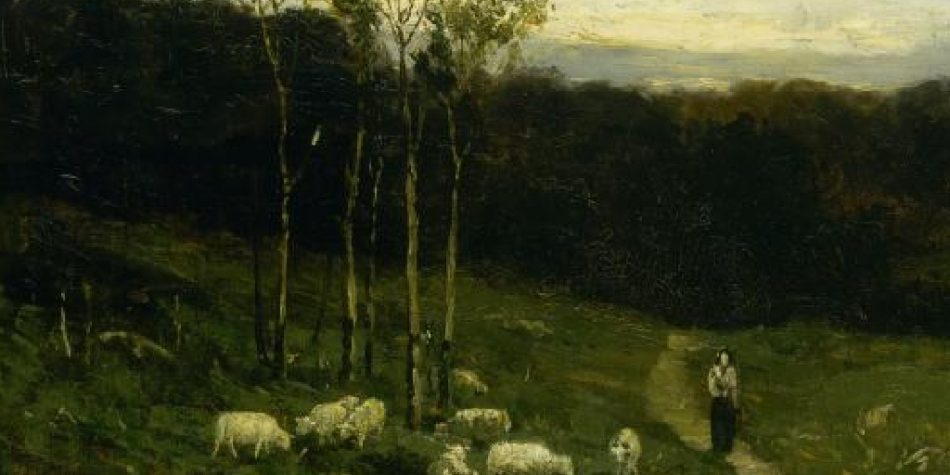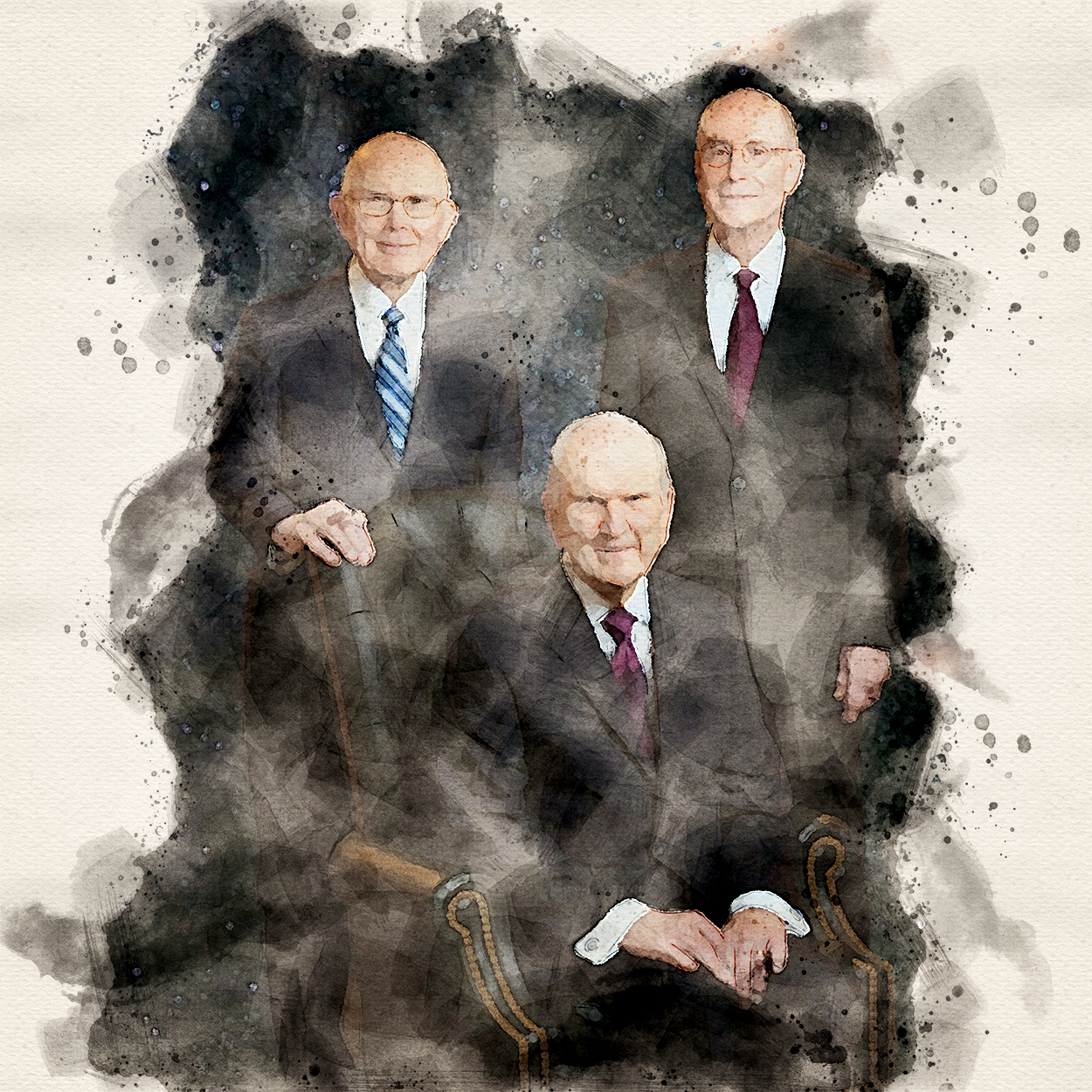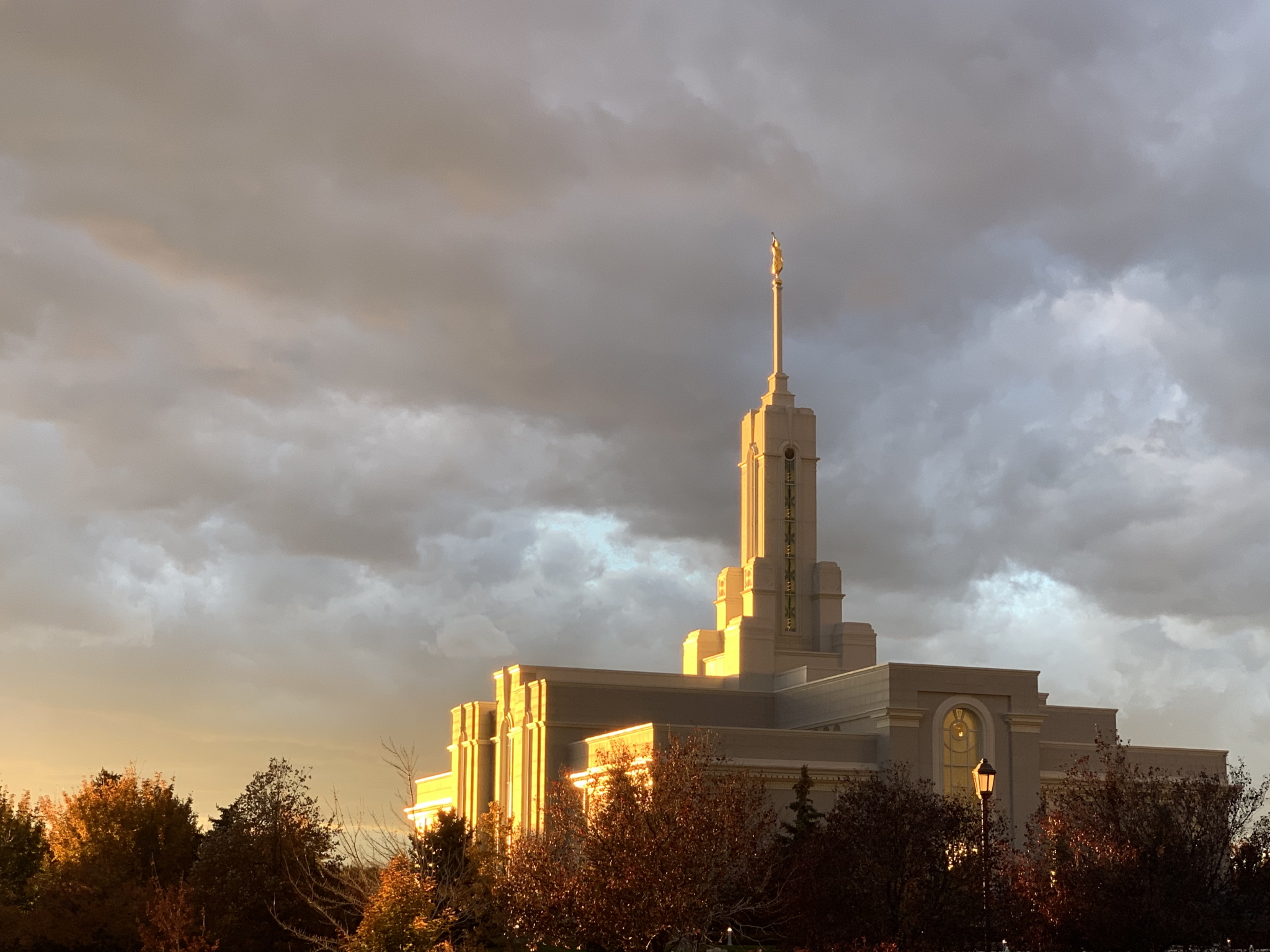We live in a nice neighborhood of newish cottages spaced fairly close together and which look quite a bit alike. Our cat, a Russian Blue (who should learn to live up to her royal pedigree), sometimes stayed out and roamed for up to 48 hours, causing us concern and making us wonder if we’d never see her again. Then one day after a swirling blizzard, she disappeared. We worried, hung up posters, spread the word on social media, to no avail. We thought we’d lost her.
Then, six weeks later, while I was at my office, I received a call from a veterinary clinic that they had her. She’d shown up at the home of an elderly couple who didn’t know how to find her owner. It was their grown children who’d told them about the possibility that she might be microchipped and sent them to the nearest vet, who then called me. Since the veterinary clinic was very close to my office, this couple delivered her into my arms. She was starved, dirty, and bewildered. In six long weeks, our kitty had wandered over 11 miles across many large and dangerous highways. I tried to imagine her journey—lost and hungry, seeking and failing over and over to find her home and safety.
A coworker helped me tape her inside an Amazon box. We punched holes in the top and carried her out to my car. On the way home, I stopped at Walmart to buy cat food. Once home, I placed the sealed box on the living room floor and got her equipment out of storage, placing each piece in its former location while the kitty meowed from the darkness of her confinement. Then I opened the lid and watched her emerge.
Blinking in the increased light, she began to realize that she was home! She had been miraculously snatched from an awful fate and had been delivered to the place of love and comfort she thought she had lost forever. Not quite believing her good fortune, she visited every nook and napping place that was formerly hers, returning time to time to tell me she loved me. Since then, she’s stayed closer to home, she’s more freely expressed her love and appreciation. She seems to remember both the trial and the salvation. We are not born into this world only to stand at the gate and step forward.
The Direction of Our Lives
We hear so much about the “strait and narrow path,” which is mostly like saying “the confined and narrow path.” The Lord says “few there be that find it” (Matthew 7:14). We are not born into this world only to stand at the gate and step forward. We have to find it first and then step onto and stay on the gospel path. It sounds fantastic to find the gate and step onto the path as young children and then follow blissfully along. Our progress would then look like this:

This is so satisfying to look at and it would be so nice to follow. Or would it? My own life’s path looks more like this:

I’m actually getting close now to my final destination and am at least satisfied that it’s where I want to be. But it’s been a winding path and I don’t think I was in control much of the time. Often, I’ve dealt with doubt and confusion just as kitty did when she was striving for home in unknown territory. Thing is, that’s the way it has to be. Mystery is an important part of our faith journey. We are supposed to be uncomfortable. In fact, if you look up the word “strait” its definition as “narrow” comes after “trouble and perplexity.”
Having to find our way in puzzling and perplexing circumstances is the essence of mortality. This means that life is often exquisitely difficult and overwhelming. Having to feel our way along, correcting mistakes and guessing at outcomes is frustrating, but necessary. Rachel Naomi Remen well-understands this principle.
Dr. Remen is the Medical Director of the Commonweal Cancer Help Program. She is the creator of The Healer’s Art, a groundbreaking curriculum for medical students—“A profoundly innovative curriculum on reintegrating the heart and soul into contemporary medicine and restoring medicine to its integrity as a calling and a work of healing.” The Healer’s Art is now taught yearly in more than half of American medical schools and in medical schools in seven countries abroad. Dr. Remen has also written two best-selling books. Her second book, My Grandfather’s Blessings: Stories of Strength, Refuge, and Belonging, has nearly 600 reviews and a 5-star rating on Amazon. It helped me understand why a circuitous path might not be an indication that I’ve failed or am failing at life.
Dr. Remen was raised by intellectual Jewish parents with no interest in things spiritual, but her grandfather was a rabbi from Old Europe, and he had learned how to “give life,” to others, increasing their understanding and their joy. At his feet, Dr. Remen learned many wonderful lessons. She continued to glean beautiful truths from the world’s great religions and to use them to help others. Here’s a lesson from Dr. Remen that has helped me view my life through a new lens:
The Path: When I was remodeling my home, I was torn between two ways of creating access to my front door. One way involved building a flight of steps from the street that opened onto a path leading directly to my door.
From the moment you set foot on the first step, you could see the front door and know exactly where you were going. The other way was quite different. You come through a gate and climb a short flight of steps to a small landing. Just beyond this landing is a tree of great beauty. As you climb, all you can see is this tree.
When you reach the landing, you discover it joins a small deck bordered by a rose garden and passing through this find another flight of steps, quite steep, leading off to the right. The top step is well above your eye level, and climbing, you see nothing until you reach a deck at the top, where looking to your right you discover a breathtaking sixty-mile view of San Francisco Bay.
Crossing this deck brings you to three gradual steps leading off to the left. Climbing these you unexpectedly find the little meadow which is my backyard, and rising from it, the exquisite profile of Mount Tamalpais, the highest mountain in our county.
Only then can you see my front door, which is now only a few steps away. You have been moving toward it steadily, without knowing, all along.
In struggling to make this decision I consulted two architects, both of whom told me that one of the basic principles of the architecture of front entrances is that people need to see where they are going from the start.
They agreed that the uncertainty of the second approach would create unease in any guest coming to the house for the first time. Despite the uniformity of this expert advice, I ultimately chose the second way.
Imagine delivering a package to Dr. Remen’s front door. How much doubt would you have that you were headed in the right direction and would finally reach your destination? Would you give up and say the package was undeliverable? Would you continue but become ever more confused, only to give a sigh of relief when you reached your goal? Would you continue on because of your fascination with the unfolding scenes whether you were headed in the right direction or not? If that was the case, would you feel guilty for trespassing?
Dr. Remen explained her choice this way:
Thinking about it now, it seems to me that knowing where we are going encourages us to stop seeing and hearing and allows us to fall asleep.
In fact, when I find myself on such a direct path, a part of me rushes ahead to the front door the moment I see it. As I hurry to overtake this part, I usually do not really see anything that I pass.
Not knowing where you are going creates more than uncertainty; it fosters a sense of aliveness, an appreciation of the particulars around you. It wakes you up much in the same way that illness does.
In fact, perhaps we only think we know where we are going as all the while we are really going somewhere quite different. I have done many things to achieve a valued goal only to discover in time that the real goal my choices have led me toward is something else entirely. …
The truth is that we are always moving toward mystery and so we are far closer to what is real when we do not see our destination clearly (pp. 288, 289).
Dr. Remen gives a profound reason for God’s perceived distance from us, and His reticence to fully define Himself for us. The mystery that surrounds Him draws us to Him. Learning how He works in our lives means seeking Him during times of trial and confusion. We strive more when He is seemingly silent. The point is not to give up as we seek Him and to take in and learn from the unexpected scenery with gratitude as we proceed. Through our experience, we gain spiritual insights that help us to serve and teach others who are following their own winding paths. When we step into mystery by following the Spirit instead of our own logic it’s both more uncomfortable and more adventurous a journey.
As Dr. Remen expressed on her blog, “In the presence of Mystery we grow not only in knowledge but also in wisdom. In my experience, the questions I have found along the way and carry with me have enriched my life far more than any answers. Even the most profound answers have often turned out to be provisional, a temporary stopping place in an ongoing and infinitely mysterious journey.”
Revealed Mysteries as a Reward
Even when a mysterious episode is completed and we can see some lessons learned, and even when we can express gratitude for the unexpected path, we still have questions. We still want the whole picture and simply cannot see it from our location in mortality. The Lord has promised rewards for those who are willing to follow the path to its end striving in faith to keep His commandments.
But unto him that keepeth my commandments I will give the mysteries of my kingdom, and the same shall be in him a well of living water, springing up unto everlasting life (Doctrine and Covenants 63:23).
Yea, he that repenteth and exerciseth faith, and bringeth forth good works, and prayeth continually without ceasing—unto such it is given to know the mysteries of God; yea, unto such it shall be given to reveal things which never have been revealed; yea, and it shall be given unto such to bring thousands of souls to repentance, even as it has been given unto us to bring these our brethren to repentance (Alma 26:22).
To have the privilege of receiving the mysteries of the kingdom of heaven, to have the heavens opened unto them, to commune with the general assembly and church of the Firstborn, and to enjoy the communion and presence of God the Father, and Jesus the mediator of the new covenant (D&C 107:19).
We Have Help Along the Way
Imagine what it would be like to be a delivery person visiting Dr. Remen’s house for the first time. That climb to her front door is unusual, long, and mystifying. How many times would you stop or even retrace your steps thinking you are on the wrong path? But what if there were a “still small voice” urging you along, telling you that you are going in the right direction and that there are more rewards ahead and even the destination you’ve been seeking!? Dr. Remen believes that this encouragement is real and that if we listen, we’ll have help along the way.
Although she is well-versed in many religious traditions, Dr. Remen chose to end her book by paraphrasing the Book of Mormon. She found remarkable the image of the Jaredite people “sailing through heavy seas in search of freedom, steering only by the light that the touch of God kindles in their souls.”
In the course of any life time, there are times when one has to sail into the unknown without map or compass. These can be times of despair and terror; they can also be times of discovery.
Having accompanied many people as they deal with the unknown, I find that the most moving part of the Mormon exodus story is a single line. Despite the challenges and great difficulties of this sea journey, “the wind always blows in the direction of the promised land.” I have seen many people spread their sails and catch this wind. There is a grace in life that can be trusted. … we are neither abandoned nor alone.
















